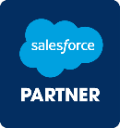30 Best Startup Pitch Deck Examples to Win Investors
Explore 30 proven startup pitch deck examples for raising funding. Learn how to build yours and use a template for real ...
Lead Generation Statistics & Trends 2025
Explore 2025 B2B lead generation statistics and trends across AI, LinkedIn, webinars, SEO, and intent data. Learn how to...
AI for Sales Prospecting: Best Tools, Strategies & Workflow (2026)
Learn how AI is transforming sales prospecting with smarter automation, predictive insights, and top 2026 tools to find ...
Best AI Meeting Summary Tools in 2026 (Free & Paid Options Compared)
Compare the best AI meeting summary tools for 2026. See how meeting summary AI works, free options, and which tools deli...
11 Best AI Meeting Transcription Tools in 2026 (Apps, Free Options & Comparisons)
Explore the best AI meeting transcription tools for 2026. Compare top meeting transcription apps, free options, accuracy...
11 Top AI Meeting Note Takers in 2026 [Best Tools Compared]
Discover the best AI meeting note takers for 2026. Compare top tools, free options, accuracy, and integrations with Zoom...
Salesforce Statistics: Revenue, Market Share, Customers, Employees, Acquisitions & More
The most detailed salesforce statistics for 2025: market growth, ROI benchmarks, AI adoption, CRM dominance, customer ba...
Top 13 AI Lead Generation Tools for Modern Sales Teams (2026)
Looking for better leads in 2026? Compare the 13 best AI lead generation tools, their pros & cons, pricing, and top use ...
12 Best AI Sales Prospecting Tools: Best Practices + Use Cases
Learn how AI is transforming sales prospecting with smarter automation, predictive insights, and top 2026 tools to find ...
Best AI for Sales Calls Tools in 2026: How Voice AI and Conversation Intelligence Are Changing Sales
Discover the best Gong alternative tools for 2026. Compare top AI platforms that analyze sales calls, coach reps, and he...






![11 Top AI Meeting Note Takers in 2026 [Best Tools Compared]](https://www.cirrusinsight.com/hs-fs/hubfs/ai-technology-microchip-background-digital-transformation-concept.jpg?width=397&height=223&name=ai-technology-microchip-background-digital-transformation-concept.jpg)




